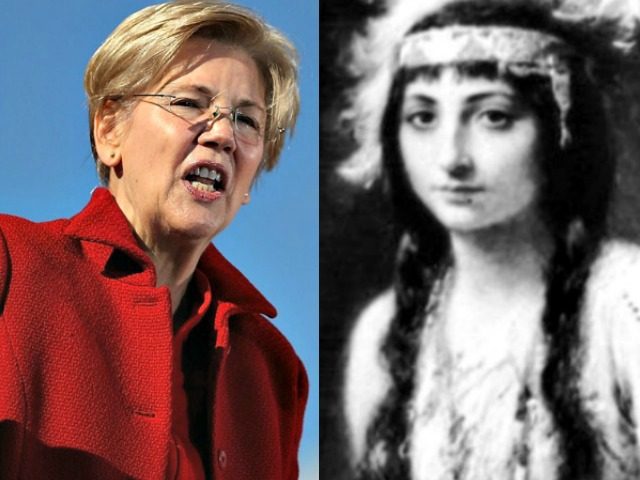Sen. Elizabeth Warren (D-MA) has a plan, but does she have an answer? Whether or not that question will be asked of the former Harvard Law School professor by any of the five moderators or the nine also-ran candidates who will share the stage with her on Wednesday night in the first of two 2020 Democratic presidential candidate debates to be broadcast by NBC on consecutive evenings is one reason to watch the first night’s debate.
Warren, who consistently polls among the top three 2020 Democratic presidential candidates, was assigned to the first night debate in a purportedly random drawing among candidates that saw the other four of the top five polling candidates–Joe Biden, Bernie Sanders, Kamala Harris, and Pete Buttigieg, all grouped together in the second night of debates, along with six also-rans.
Warren’s campaign has gained momentum recently as she has set forward a number of progressive policy proposals using the catchy phrase “I have a plan for that.”
But one of her biggest vulnerabilities in a potential general election matchup with President Trump is the controversy surrounding her claim that she has Native American ancestry, a claim that she used to help advance her career as she moved up the law school hierarchy from the University of Texas, where she taught in the early 1980s, to the University of Pennsylvania, and then to Harvard Law School, the faculty of which she joined in 1995.
As Breitbart has reported extensively since 2012, Warren has never produced documentary evidence to support this claim, and her attempts to demonstrate genetic evidence backfired dramatically in October, when a DNA test she took showed that, at best, she could claim only 0.1 percent to 1.6 percent ancestry in common with residents of Peru, Mexico, and Columbia.
Several Native American tribes in the United States ridiculed that DNA results as providing any evidence whatsoever that she had an ancestral connection to Native American tribes indigenous to the United States, and Warren spent several months backtracking and apologizing.
During the 2016 Democratic presidential primaries, Hillary Clinton had a similar vulnerability–how could she explain the fact that as Secretary of State she kept 30,000 emails on a private server that violated her own department’s information security rules?
Bernie Sanders had an opportunity to press her on that issue during one Democratic presidential candidate debate in October 2015, and he whiffed.
Instead of pressing Clinton on an issue that would clearly have weakened her and given him a better chance to win the nomination, Sanders declared at the debate that he was “not interested” in her emails.
It was a missed opportunity that many pundits saw as a clear indication he was not in the contest to win the nomination.
In the 2016 general election, Donald Trump repeatedly attacked Clinton over the emails, and it had an impact.
Warren is likely to focus all questions directed to her with responses that outline the details of her various progressive “plans” to transform America. If she maintains message discipline and focuses on her “plans,” she is likely to emerge from Wednesday evening’s debate unscathed.
If, however, she is pinned down on her general election vulnerability and asked to definitely answer why, beginning in 1984, she claimed to have Native American ancestry without any evidence to support that claim, she could be rattled.
The question is which candidate, among the nine also-rans at the night one debate, would be willing to mount such a direct attack on Warren.
According to the latest Real Clear Politics Average of Polls, Biden leads the race for the 2020 Democratic presidential nomination with 32 percent, Sanders is in second with 16 percent, and Warren is in third with 12.4 percent. Sen. Kamala Harris (D-CA) and South Bend, Indiana Mayor Pete Buttigeig are tied for fourth at seven percent.
Nine also-rans who poll below five percent are included in the night one debate: former Rep. “Beto” O’Rourke (D-TX) at 3.3 percent, Sen. Cory Booker (D-NJ) at 2.4 percent, Sen. Amy Klobuchar (D-MN) at one percent, Rep. Tulsi Gabbard (D-HI) at 0.5 percent, former San Antonio Mayor Julian Castro at 0.8 percent, Rep. Tim Ryan at 0.6 percent, and Washington Gov. Jay Inslee at 0.5 percent.
Two other night one debaters, former Rep. John Delaney (D-MD), and New York City Mayor Bill DiBlasio, along with night two debaters Sen. Kirsten Gillibrand (D-NY) and self-help guru and “spiritualist” Marianne Williamson, don’t even register on the Real Clear Politics Average of Polls. The most recent Morning Consult Poll give each of them just one percent support.
The consequences for any of the also-ran candidates who would choose to challenge Warren on the issue of her claimed Native American ancestry, however, could be dire, as they would risk condemnation from both the Democratic establishment and the mainstream media for having the bad taste to pose the question.
On the other hand, such a direct confrontation would certainly give them heightened visibility.

COMMENTS
Please let us know if you're having issues with commenting.